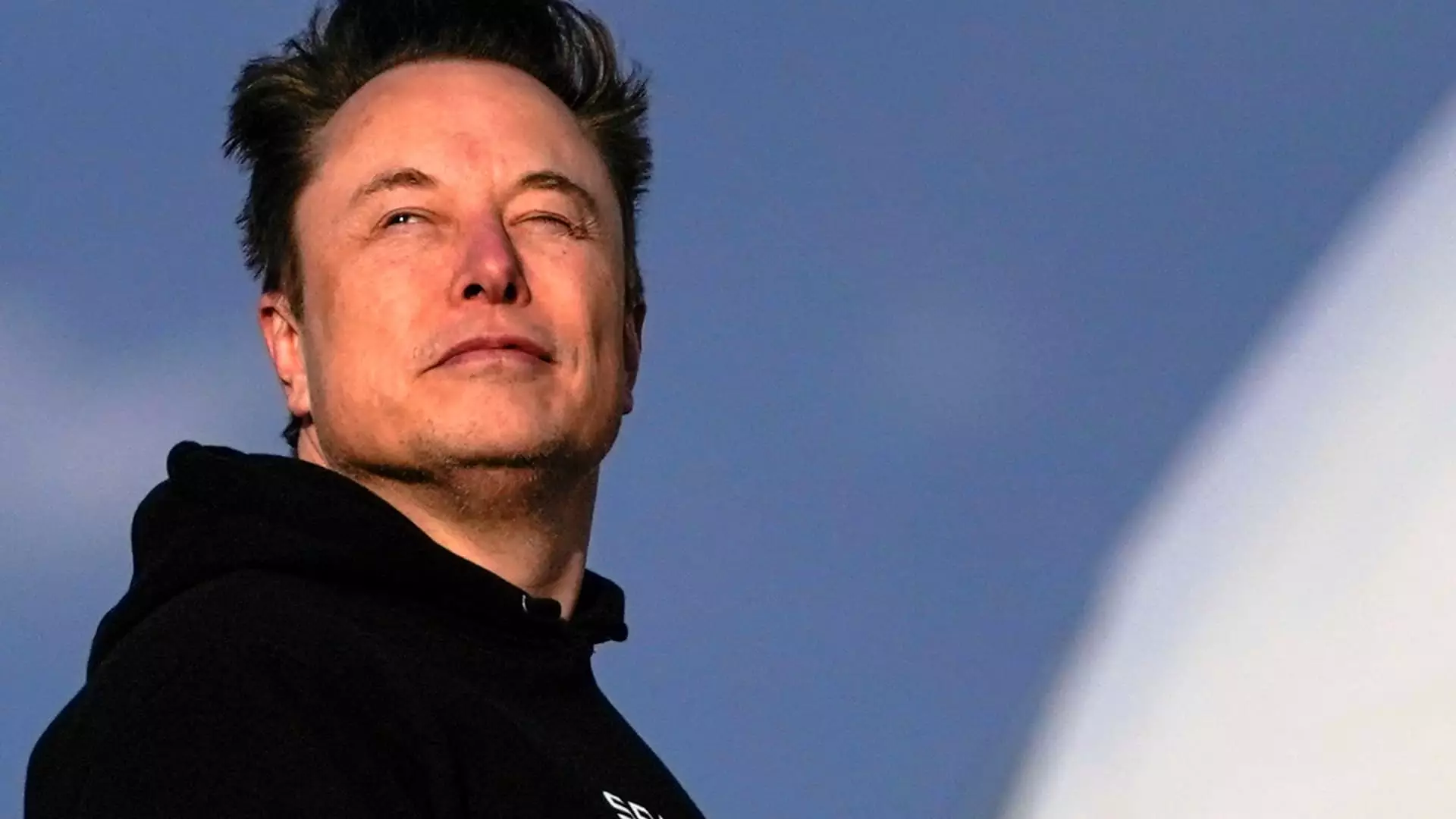In a bold move that could reshape the technological landscape, Elon Musk’s xAI has officially merged with his social media platform, X. Valued at an impressive $80 billion, xAI’s integration with X, previously known as Twitter, is now pegged at $33 billion. This all-stock merger signals an ambition that goes beyond mere business—it hints at a transformative union between artificial intelligence and social media dynamics. The financial implications are staggering, and yet they merely scratch the surface of what this partnership could mean for society at large.
Musk proclaimed via a post on X, “xAI and X’s futures are intertwined,” hinting at a convergence strategy designed to leverage both companies’ strengths. By combining data, models, computational power, distribution channels, and talent pools, Musk envisions a platform that can not only compete globally but could redefine communication and information dissemination in the digital age. While this merger comes with its own set of risks, it also carries immense potential, making it one of the most discussed events in tech circles today.
Financial Models and Valuation Questions
The merger’s mechanics have drawn scrutiny. With xAI valued at $80 billion, and X at $33 billion, it seems that the floating valuation made room for a high-stakes stock swap. The merger values xAI at a remarkable $45 billion—minus $12 billion in debt—thereby creating a complex financial narrative that could inspire jealousy among competitors. Musk’s control over both entities allows him to manage these valuations in ways less accessible to other business leaders in more traditional corporate hierarchies.
Investors, including prominent firms such as Andreessen Horowitz and Sequoia Capital, are already involved, yet one can’t help but question if this merger represents the bloated valuations typical in tech or if Musk’s vision genuinely justifies this staggering price tag. The conversations around these numbers reveal a disconnect between immense optimism about AI’s potential and the practical, tangible results (or lack thereof) that such technologies have historically yielded. As of late, many investors are understandably hesitant over inflated valuations that often lead to disillusionment.
The Powerplay of Merging Tech Giants
Musk’s dual role as CEO of Tesla and SpaceX, alongside his responsibilities for X and now xAI, positions him as a central figure in the techno-political landscape. His actions resonate beyond just investor circles, digging into public policy and regulatory frameworks. His contributions to President Donald Trump’s 2024 campaign and his new role in the Department of Government Efficiency (not so subtly abbreviated as DOGE) paint a clear picture: Musk is not just a business mogul but a potent influencer in shaping governance.
This intersection between tech business and political power raises important ethical questions. Is Musk merely aiming to innovate, or is there an underlying strategy of consolidating control? The merger reflects a broader trend in Silicon Valley where tech leaders exert significant influence over public policy, effectively holding the reins in a rapidly shifting economy. This isn’t simply a merger of ideas; it’s an alignment of interests that could lay the foundation for a new era of digital communication.
Controversies and Public Advocacy
However, this rapid advancement has not come without criticism. Environmental activists and public health advocates have raised alarms about xAI’s Memphis supercomputer efforts—described as being rushed without community input. The reliance on natural gas and plans for additional infrastructure like a graywater treatment plant showcase a disconcerting disregard for the immediate environmental implications. Though innovation is paramount, it should not come at the cost of community welfare and ecological sustainability.
As the AI race intensifies, and as Musk continues to orbit around mighty institutions, the concern remains: who really benefits from this spearheading of technology? In a world increasingly dominated by AI and data, ethical considerations must not fall by the wayside. The merger between xAI and X might serve as a clarion call for a more conscientious approach to innovation—one that prioritizes societal implications as much as it values technological prowess.
The Future Under Musk’s Umbrella
This consolidation of power invites questions about the future landscape of technology, information, and personal freedom. Musk’s innovations across multiple domains have certainly disrupted established norms, but there lies an undercurrent of trepidation regarding the limits of corporate control over individual thought and expression. As artificial intelligence becomes more sophisticated, where do we draw the line on ethics, privacy, and autonomy?
The merging of xAI and X serves as a litmus test for what lies ahead. Will it cultivate a renaissance in efficient communication driven by cutting-edge AI? Or will it foster a dystopian reality shaped by unchecked corporate and political interests? As Musk’s empire continues to grow, so does the need for a vigilant and informed society that can navigate these complex waters without losing sight of its most fundamental values.

